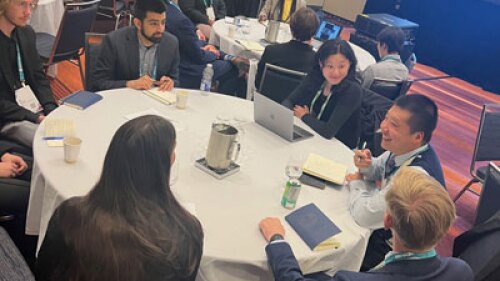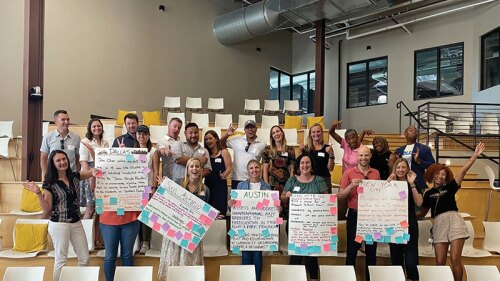Weighing racial disparities in the commercial real estate industry.
The Urban Land Institute’s Northwest district council is among a group of five ULI district councils has been working to examine local histories of racial discrimination in land use and transportation, to draw connections with current health equity disparities, and to chart a course towards a more equitable future for the real estate industry. The project, ULI District Council Partnerships for Health Equity, is supported by the ULI Building Healthy Places Initiative with financial support from the Robert Wood Johnson Foundation.
The cohort of participating district councils includes ULI Houston, ULI St. Louis, ULI British Columbia, ULI Northwest, and ULI Toronto. The project launched last year, following an open call for interest from North American district councils. The district councils are working in partnership with other organizations locally to understand historic inequities and racial discrimination in land use, and to craft creative strategies to address the ongoing impacts of these policies on community health and wealth disparities. These action agendas for change in real estate will emphasize tangible steps for real estate, in addition to broader policy recommendations.
The ULI Building Healthy Places Initiative works to make health and social equity mainstream considerations in real estate practice. According to William Herbig, senior director of the ULI Building Healthy Places Initiative, “The two main factors driving this reckoning within the industry and within ULI include the disproportionate impact of COVID-19 on communities of color and those of low income; and the rise of the racial justice movement as a result of the brutal murder of George Floyd.
“ULI, as an organization, has committed to doing more,” Herbig says. “Our profession has been part of the problem. We have the ability and the responsibility to address racial inequity going forward. But we cannot go at it alone. Finding solutions requires building new bridges of trust and cooperation beyond our network of members.”
That the district council teams are geographically diverse was intentional. And this marks the first time a Building Healthy Places program has been able to fund councils in Canada. “The systemic racial issues are different in the U.S. versus Canada, and there’ve been robust listening and learning opportunities amongst the two Canadian teams and the U.S. teams to better understand nuances involved in Black and Indigenous experiences and differences in the two countries,” Herbig says Each district council has identified chairs and a leadership group for the effort.
The aim of this program is to “address these systemic issues,” Herbig says. To do so, the ULI district councils are reaching beyond their established local networks, forging new relationships, learning about local histories, and working to drive fundamental industry change.
Advancing Healthy, Community-Centric Growth
Tukwila in South King County, a suburb of Seattle, is a diverse, growing, immigrant-rich community that struggles with its reputation as a high crime area. It is one of two neighborhoods that ULI Northwest is setting its sights on for its ULI Building Healthy Places Partnership project.
ULI Northwest is joining with Healthpoint, a nonprofit health center, in Tukwila which is developing a new integrated wellness and health clinic. The area is extremely diverse but has little green space and bad health outcomes.
“We’re partnering with Healthpoint to put something in this location that really benefits the population and the community,” says Andrea Newton, executive director at ULI Seattle.
The team plans to provide technical assistance to help the more than 50-year-old clinic. They will incorporate what has been learned from the health center’s stakeholder engagement process and provide technical assistance to aid with the evaluation of potential multiple developer and partnership models, capital financing and sustainable operations.
“We want to put together an action agenda that can live in the annals of ULI to help guide developers and land use professionals as an approach to working collaboratively with communities,” Newton said.
They also plan to orient their partners at Healthpoint to building healthy places practices. The team is also now working on finalizing an additional project site in Portland. Team members are happy to begin to help address issues that have impacted local communities for decades.
“Each place has its own histories, and every place in America has a history of this white-led real estate industry and design industry that I am a part of, as well,” Seattle-based Partner with Mithun, and ULI Northwest Committee Chair Erin Christensen Ishizaki said. “I personally feel, while in the Northwest there’s been a conversation around racial and social justice for many years, I haven’t seen it come this directly into the real estate space until now.”
Ishizaki said it is clear work is being done within the public sector and the nonprofit sector. However, it is incumbent upon the commercial real estate industry to “step up and participate more actively within these initiatives, and more specifically try to combat some of that displacement,” she said.





